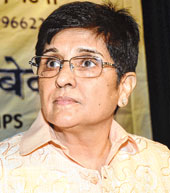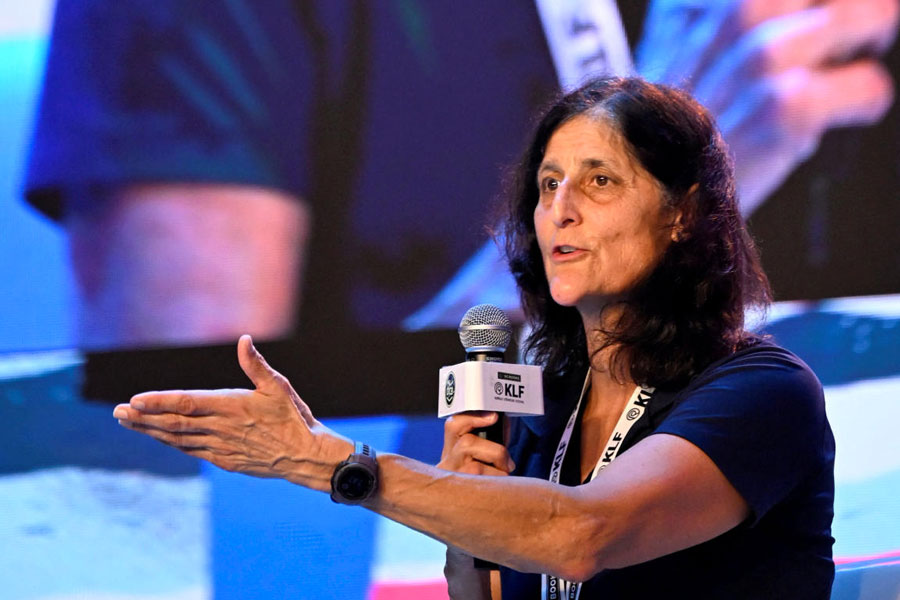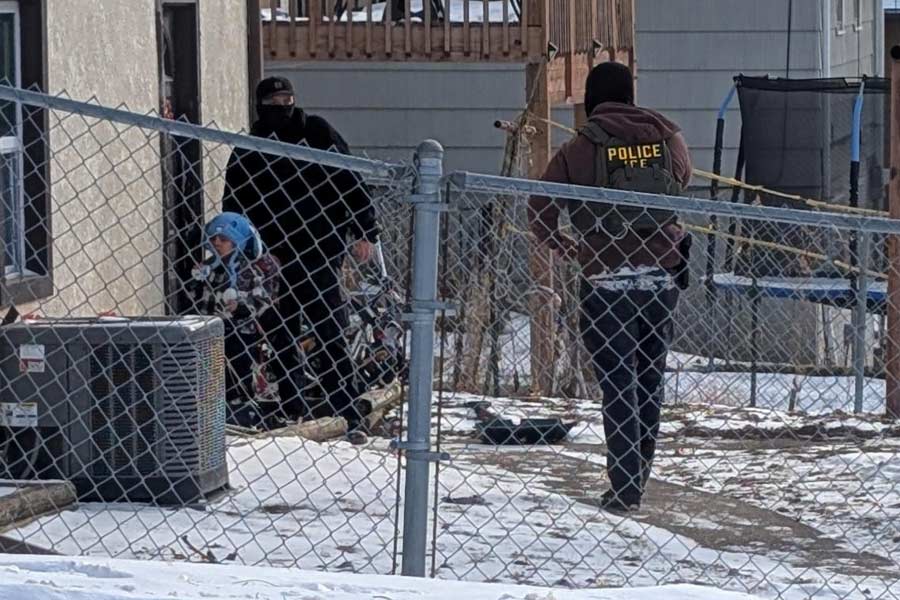Shashikant Yadav (name changed) hadn’t slept for several nights. His 20-year-old son, lodged in Delhi’s Tihar jail, had told his father that he had been sexually molested by senior inmates. But this morning, there’s a smile on his face as he walks out of Gate No. 3 earmarked for visitors. He’s just heard that his son may soon be released on bail.
“Tihar sudhaarta nahi hai, bigaarta hai. (Tihar doesn’t reform you; it mars you),” Yadav says.
The alleged suicide of Ram Singh — the main accused in the December 16 Delhi gang rape case — on March 11, which was followed by a woman undertrial, Reshma, taking her life, points to a deep malaise in the system at the Tihar Central Jail. India’s best known jail — located in the capital, and famous for its reforms as well as high-profile inmates — has hidden tales of torture and corruption.
“The physical and mental torture that inmates go through is beyond one’s imagination,” Mohammad Aamir Khan, a former inmate, says. Accused of being involved in several bomb blasts in Delhi, Khan spent close to 10 years in Tihar before he was acquitted in 17 cases last year. “There is one model jail in Tihar (Jail No. 2) which is presented to the media and visiting VIPs. Life beyond this model jail is very different,” says Khan, 33.
Tihar’s prison complex — spread over 400 acres and comprising nine jails — has more than 10,500 inmates, almost double its capacity of 5,500. About 540 prisoners are women, 450 are foreigners, and some 75 per cent of all inmates are undergoing or awaiting trial.
Before the suicides, Tihar had been getting a lot of good press. Just the other day, a fashion show had been organised by its women inmates. TJ’s — or Tihar Jail — is the brand name of all that the jail produces — from edibles to apparel. Its turnover last year was Rs 13 crore.
“For the outside world, Tihar has been all about the brand TJ’s, about yoga, vocational centres, job placements, drug de-addiction, and tournaments and competitions. But it is only the officials who have benefited from all this publicity, not the inmates,” says an employee of a group working for the welfare of prisoners.
What goes on inside the four walls of the jail are corrupt practices and acts of brutality, former inmates, relatives and non government organisations maintain. They allege that a few corrupt officials are always ready to please hardened criminals or affluent inmates in exchange for money. As a result, anything that is officially banned is easily available — from sharp weapons and surgical blades to mobile phones and drugs.
“There are inmates who sell drugs inside the jail only to support their families outside. These stories never come out because some jail officials are hand-in-glove with the inmates,” Khan, who now works at an NGO in Delhi, adds. Khan says that he was beaten up by other inmates on four occasions. Jail officials knew about it, but did not allow him to lodge a complaint.
Many of the undertrials, insiders say, are forced to give head massages to officials, as well as polish their shoes and clean their toilets.
The jail administration denies these allegations. “We have a sessions in charge who listens to the grievances of the inmates, but no inmate has ever made any such complaints. We also have CCTVs to monitor the activities inside the jail,” says Sunil Gupta, PRO, Tihar.
Although the authorities claim that mobile jammers have been installed in the jail, the use of mobile phones is common. “Most of the criminals who have been convicted in the high profile terror and murder-related cases have mobile phones to keep themselves connected to the world outside,” says Syed Mohammad Ahmad Kazmi, an accused in the 2012 Israeli diplomat’s car attack case in Delhi.
Those who have experienced Tihar allege that jail authorities treat inmates the same way policemen treat people in a lock-up.
“Tihar does its best to remind the inmates, even the undertrials, that they are criminals and they deserve to be treated the way they are,” claims Iftikhar Gilani, a journalist who was arrested on charges of spying in 2002 and spent time in Tihar. Prisoners have to walk on the sides of the hallway with their heads down and salute officials, says Gilani, who was forced to clean a toilet with his shirt when he was taken to Tihar — and then made to wear the same shirt for three days.
But those, it can be argued, are minor problems. Worse still are the cases of hardened criminals brutalising or sodomising other inmates. These acts are often inflicted on criminals who are considered the lowest of the low.
In the world of convicts, a hierarchy prevails. On the lowest of the rungs of acceptability are terrorists, followed by rapists. When the accused in the Delhi rape case were taken to Tihar, there were unconfirmed reports of the men being physically and sexually abused by other inmates.
“Rape accused are tortured the most,” says a worker at an NGO who deals with Tihar. “Inmates call it the ‘special treatment’.”
Jai Kumar, a lawyer at Delhi’s Dwarka court, who is fighting on behalf of some 70 undertrials in Tihar, says he has witnessed acts of brutality. In front of him, one of his clients was stripped naked and caned inside the jail by a convict for a minor indiscretion.
“When I intervened, the man who was hitting my client with the consent of a jail official said he was teaching him ‘Tihar ka kanoon’ (the law of Tihar). I had to plead with the warden to stop the torture,” Kumar says.
With only five on-demand psychiatrists at Tihar, many who undergo mental turmoil have no way of knowing that they need help. V.K. Anand, the lawyer for the prime accused in the Delhi gang rape case (who committed suicide), says his client was going “through hell” in Tihar but nobody was there to help him.
“We have been screaming from rooftops that the lives of the Delhi rape accused are in danger in Tihar. Ram Singh had written to every constitutional authority saying that he feared for his life, but nobody listened,” Anand says.
NGOs allege that high-profile prisoners hardly face any problems in jail, for the rules don’t apply to them. And despite complaints, no action is taken against errant officials.
 |
| CARING COP: Kiran Bedi introduced prison reforms |
When some inmates — through the Multiple Action Research Group (Marg) a Delhi-based NGO — complained to the High Court on the high-handedness of authorities within the premises, the court asked four judges to visit the premises of Tihar and conduct an inquiry late last year.
An inmate, Naresh Kumar, told a judge in a sworn oath that he was thrashed by a warden in Jail No. 7 and a convict who had accompanied the warden. Another inmate had a similar complaint against the warden.
The judges looked into several other complaints, and one of the judges admitted that mild beatings and fights were common. Another judge noted that “stabbings and blading happenings (sic) are in existence in the jail.”
One of the judges suggested that independent agencies such as the National Human Rights Commission be deputed to the jail to observe CCTV recordings and keep track of any untoward incidents.
Ritu Kumar, who filed the case on behalf of Marg, claims the complainants are now being harassed. “Only a few people have shown the courage to complain openly (against officials). There are many more who may be too scared of doing so, fearing retribution,” Kumar says.
Tihar officials deny the allegations. “The allegations are very vague. We had a close look at them and didn’t find anything serious. People are free to complain even within Tihar and we take everybody seriously,” says PRO Gupta. No action has been taken against the warden.
A former head warder, who was awarded the president’s correctional service medal, says complaints against Tihar are being overlooked because of a few highly publicised reform measures.
“Kiran Bedi was the first and the last inspector general of prisons who did something substantial,” the former official says.
Bedi, in turn, believes that improving facilities in jails is a continuous process. “There will always be complaints, but looking into each one of them seriously and finding a solution is important. That’s what I did,” she says. “There is no end to it.”
‘Everything is for sale’
 |
Ashwin Naik took over the Naik gang after his brother was murdered. A civil engineer by profession, Naik was paralysed from the waist down after he was shot at by a rival gangster in 1994. Naik had 16 cases of murder, extortion and criminal assault registered against him and was accused of murdering his wife, Shiv Sena corporator Neeta Naik. Naik, who was released in 2009 after being jailed for 10 years — of which five-and-a-half years were in Tihar — gives Velly Thevar glimpses of his life in India’s best known jail
I was very stressed when I landed in Tihar. I had been framed in many cases. There was the fear of rival gangsters bumping me off and the fact that I was paralysed waist down was not giving me any confidence. But I slowly got my bearings.
I was in Jail No. 3 but spent a lot of time in the hospital because I needed care. There were several nurses from Kerala, and sometimes they even shared their dabba (lunchbox) with me. Though it is said that jail ki dosti phatak tak hai (friendships in prisons last till the gate), my friendship with inmates and guards has stood the test of time.
At Tihar, you could buy your own TV set (it became prison property later). I sponsored some 50 sets for other inmates. I also ran a canteen. I went to Tihar in June 1999. That was when the Kargil war happened. We contributed a lot of money to war funds. I gave Rs 2 lakh.
Everything is for sale, as in all prisons. If you have money, you get the comforts. One Gandhi (a Rs 500 note) would get you seven pouches of tobacco. Kiran Bedi tried to stop that — but the guards sold tobacco on the sly.
There were instances of inmates being beaten up in jail. Lack of sleep is a big problem in prison and people often took sleeping tablets. I think it is entirely possible for someone to commit suicide. We had several cases during my time and the guards had a tough time when the head count showed a missing number. Sometimes, of course, the inmate would be found hiding atop a tree or in the water tank. There was a lot of dramabazi in Tihar.
A day in the life of an inmate
 |
| The physical and mental torture... is beyond one’s imagination Md Aamir Khan A former inmate of Tihar |
6am: Roll call of all inmates, followed by morning prayers
7.30am: Inmates have their breakfast of bread and tea
9am: They get ready to go to court and for other activities
10.30am: Tea is served with two biscuits for each inmate
9.30am-1pm: Mulakat time. Inmates can interact with family members and friends for half an hour (twice a week)
1pm: Lunch comprising rotis, rice, dal and one vegetable dish
3pm: Tea and two biscuits for each
3.30-5.30pm: Inmates can meet their advocates, counsels, embassy officials, etc.
6pm: Dinner comprising rotis and vegetables
7pm: Roll call of prisoners
Additional reporting by Sonia Sarkar










